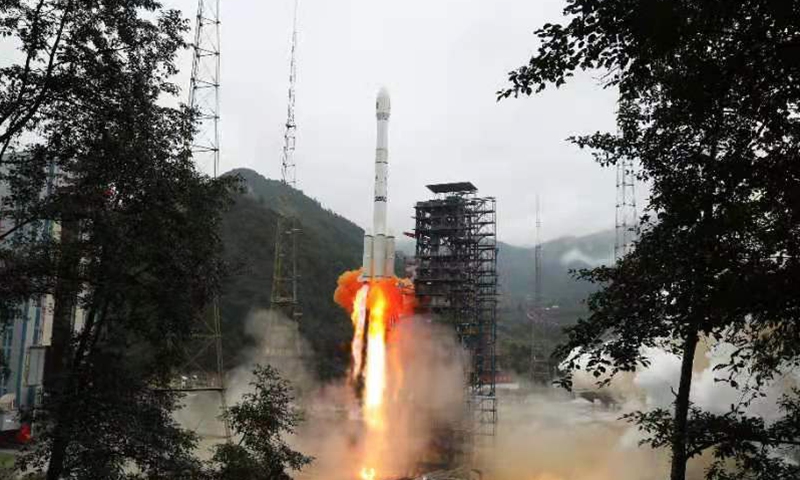China to study use of AI technology in avoiding space debris

China will study the use of artificial intelligence (AI) in avoiding space debris, a significant effort to use orbital resources more effectively and strengthen the control of super-large scale constellations, ensuring the safety of spacecraft in orbit and creating a new technology of rapid intelligent calculation capability for preventing large-scale space debris.
The project on "intelligent modeling of the complex evolving principle of complex environments for space debris and autonomous monitoring" was launched by the State Key Laboratory of Astronautic Dynamics (ADL), affiliated with the Xi'an Satellite Control Center in Northwest China's Shaanxi Province.
It was approved by the Ministry of Science and Technology as a "New Generation of Artificial Intelligence 2022 Major Program" in Science and Technology Innovation 2030, the Global Times learned from the satellite control center on Wednesday.
Space debris generated by human activities has become a major obstacle and threat to space exploration. This situation urgently calls for joint efforts by the international community.
According to researchers, there have been more than 640 events including explosions, disintegrations and collisions resulting in serious consequences during the history of astronautics.
There are more than 30,000 pieces of debris of more than 10 centimeters in space, more than 1 million with sizes ranging from 1-10 centimeters, and hundreds of millions that are just over 1 millimeter in size.
Space debris research and monitoring face multiple challenges, including an extremely large number of pieces of passing debris at any one time. Difficulties in terms of fast computation and matching make it difficult to predict their speed, direction and fragmentation.
ADL has been engaged in researching space collision avoidance and space debris mitigation. Its new project aims to integrate AI model algorithms and domain knowledge.
"We will take the implementation of the project as an opportunity to actively align national strategic needs and cooperate with domestic competitive units to provide strong technical support for strengthening the nation's space traffic management and contributing to China's building of a space power," Li Hengnian, director of ADL, told the Global Times on Wednesday.
"We will study the AI paradigm of online monitoring of space debris, the evolution of debris environment and space situational awareness," Jiang Yu, chief scientist of the project from ADL, told the Global Times on Wednesday.